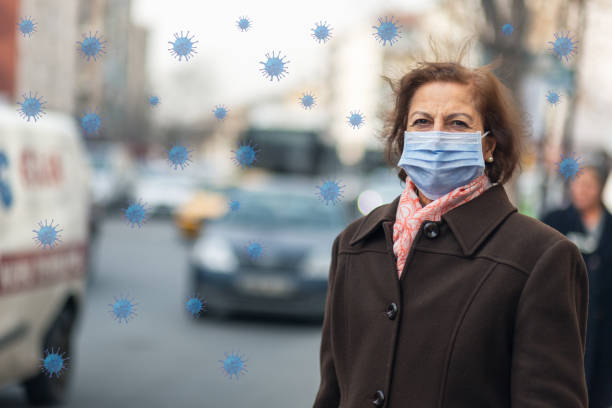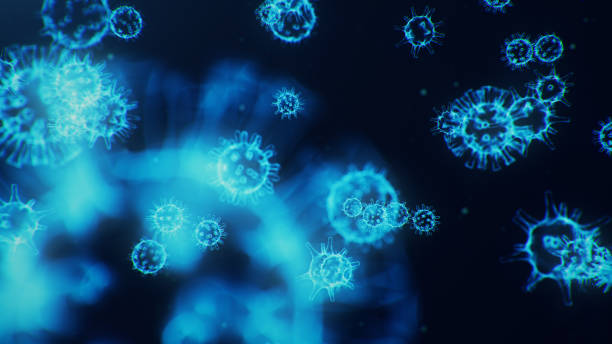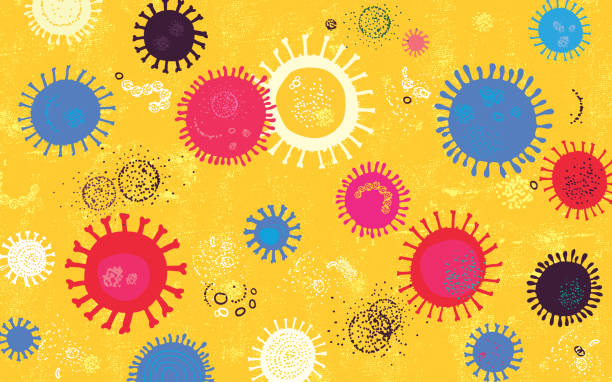Title: Understanding Coronavirus Treatment: From Antiviral Therapies to Vaccines
In December 2019, a novel coronavirus, later named SARS-CoV-2, emerged in Wuhan, China, leading to a global pandemic. The virus quickly spread, causing COVID-19, a respiratory illness that overwhelmed healthcare systems worldwide. Scientists and medical researchers embarked on a race against time to develop effective treatments for the virus. This article delves into the multifaceted approaches employed in coronavirus treatment, from antiviral therapies to the revolutionary development of vaccines.
Antiviral Therapies: Targeting the Virus
One of the initial strategies in combating the coronavirus was to identify and repurpose existing antiviral drugs. These drugs were designed to target various stages of the virus's life cycle, from entry into host cells to replication and release. Remdesivir, a broad-spectrum antiviral drug, gained significant attention for its potential to inhibit viral replication. Clinical trials showed promising results, leading to its emergency use authorization in treating COVID-19.
Another approach involved identifying drugs that could suppress the excessive immune response triggered by the virus, which often led to severe respiratory complications. Drugs like dexamethasone were repurposed to mitigate the cytokine storm, a harmful immune response that can result in organ damage. This approach marked an important step in preventing COVID-19-related fatalities.
Monoclonal Antibodies: Mimicking Natural Immunity
Monoclonal antibody therapies emerged as a valuable tool in coronavirus treatment. These synthetic antibodies, designed to mimic the immune system's natural response, targeted the spike protein of the virus. Regeneron's casirivimab and imdevimab, along with Eli Lilly's bamlanivimab and etesevimab, gained emergency use authorization for the treatment of mild to moderate COVID-19 cases. These therapies aimed to reduce the severity of symptoms and prevent disease progression, particularly in high-risk individuals.
Convalescent Plasma Therapy: Tapping into Immune Memory
Convalescent plasma therapy involved collecting plasma rich in antibodies from individuals who had recovered from COVID-19. This antibody-rich plasma was then transfused into critically ill patients. While the results were variable and dependent on the timing of treatment, convalescent plasma offered a potential avenue for passive immunity transfer to help patients fight off the virus.
The Quantum Leap: COVID-19 Vaccines
Amidst the challenges of treating active infections, the scientific community achieved a monumental breakthrough in the form of COVID-19 vaccines. These vaccines were designed to stimulate the immune system to recognize and mount a defense against the virus without causing the disease itself. Several vaccine technologies were developed, each with unique advantages.
Messenger RNA (mRNA) vaccines, such as the Pfizer-BioNTech and Moderna vaccines, marked a historic leap in vaccine development. They introduced a new paradigm, encoding a small piece of the virus's genetic material to trigger an immune response. These vaccines demonstrated remarkable efficacy in clinical trials, leading to their rapid deployment.
Vector vaccines, like the AstraZeneca and Johnson & Johnson vaccines, utilized harmless viral vectors to deliver a piece of the coronavirus's genetic material into cells. This approach elicited a strong immune response and proved effective in preventing severe illness and hospitalization.
Combating Variants: Adapting Treatments and Vaccines
As the virus mutated and gave rise to new variants, researchers faced the challenge of maintaining treatment and vaccine efficacy. Some variants showed reduced susceptibility to existing therapies and vaccines, necessitating rapid adjustments.
Booster doses emerged as a strategy to enhance immunity, especially against emerging variants. These additional vaccine doses aimed to reinforce the waning immune response and provide protection against new strains. Pharmaceutical companies worked diligently to develop updated vaccines targeting specific variants, thereby staying ahead of the evolving virus.
Conclusion
The quest for effective coronavirus treatment has been a journey marked by innovation and collaboration. From antiviral therapies and monoclonal antibodies to the groundbreaking development of vaccines, science and medicine have made significant strides in combating COVID-19. As the pandemic continues to unfold, researchers, healthcare professionals, and pharmaceutical companies remain dedicated to refining existing treatments, developing new therapies, and adapting vaccines to address the challenges posed by the virus and its variants. Through these collective efforts, humanity continues to strive for a world where the impact of COVID-19 is mitigated, and global health is safeguarded.
In December 2019, a novel coronavirus, later named SARS-CoV-2, emerged in Wuhan, China, leading to a global pandemic. The virus quickly spread, causing COVID-19, a respiratory illness that overwhelmed healthcare systems worldwide. Scientists and medical researchers embarked on a race against time to develop effective treatments for the virus. This article delves into the multifaceted approaches employed in coronavirus treatment, from antiviral therapies to the revolutionary development of vaccines.
Antiviral Therapies: Targeting the Virus
One of the initial strategies in combating the coronavirus was to identify and repurpose existing antiviral drugs. These drugs were designed to target various stages of the virus's life cycle, from entry into host cells to replication and release. Remdesivir, a broad-spectrum antiviral drug, gained significant attention for its potential to inhibit viral replication. Clinical trials showed promising results, leading to its emergency use authorization in treating COVID-19.
Another approach involved identifying drugs that could suppress the excessive immune response triggered by the virus, which often led to severe respiratory complications. Drugs like dexamethasone were repurposed to mitigate the cytokine storm, a harmful immune response that can result in organ damage. This approach marked an important step in preventing COVID-19-related fatalities.
Monoclonal Antibodies: Mimicking Natural Immunity
Monoclonal antibody therapies emerged as a valuable tool in coronavirus treatment. These synthetic antibodies, designed to mimic the immune system's natural response, targeted the spike protein of the virus. Regeneron's casirivimab and imdevimab, along with Eli Lilly's bamlanivimab and etesevimab, gained emergency use authorization for the treatment of mild to moderate COVID-19 cases. These therapies aimed to reduce the severity of symptoms and prevent disease progression, particularly in high-risk individuals.
Convalescent Plasma Therapy: Tapping into Immune Memory
Convalescent plasma therapy involved collecting plasma rich in antibodies from individuals who had recovered from COVID-19. This antibody-rich plasma was then transfused into critically ill patients. While the results were variable and dependent on the timing of treatment, convalescent plasma offered a potential avenue for passive immunity transfer to help patients fight off the virus.
The Quantum Leap: COVID-19 Vaccines
Amidst the challenges of treating active infections, the scientific community achieved a monumental breakthrough in the form of COVID-19 vaccines. These vaccines were designed to stimulate the immune system to recognize and mount a defense against the virus without causing the disease itself. Several vaccine technologies were developed, each with unique advantages.
Messenger RNA (mRNA) vaccines, such as the Pfizer-BioNTech and Moderna vaccines, marked a historic leap in vaccine development. They introduced a new paradigm, encoding a small piece of the virus's genetic material to trigger an immune response. These vaccines demonstrated remarkable efficacy in clinical trials, leading to their rapid deployment.
Vector vaccines, like the AstraZeneca and Johnson & Johnson vaccines, utilized harmless viral vectors to deliver a piece of the coronavirus's genetic material into cells. This approach elicited a strong immune response and proved effective in preventing severe illness and hospitalization.
Combating Variants: Adapting Treatments and Vaccines
As the virus mutated and gave rise to new variants, researchers faced the challenge of maintaining treatment and vaccine efficacy. Some variants showed reduced susceptibility to existing therapies and vaccines, necessitating rapid adjustments.
Booster doses emerged as a strategy to enhance immunity, especially against emerging variants. These additional vaccine doses aimed to reinforce the waning immune response and provide protection against new strains. Pharmaceutical companies worked diligently to develop updated vaccines targeting specific variants, thereby staying ahead of the evolving virus.
Conclusion
The quest for effective coronavirus treatment has been a journey marked by innovation and collaboration. From antiviral therapies and monoclonal antibodies to the groundbreaking development of vaccines, science and medicine have made significant strides in combating COVID-19. As the pandemic continues to unfold, researchers, healthcare professionals, and pharmaceutical companies remain dedicated to refining existing treatments, developing new therapies, and adapting vaccines to address the challenges posed by the virus and its variants. Through these collective efforts, humanity continues to strive for a world where the impact of COVID-19 is mitigated, and global health is safeguarded.




